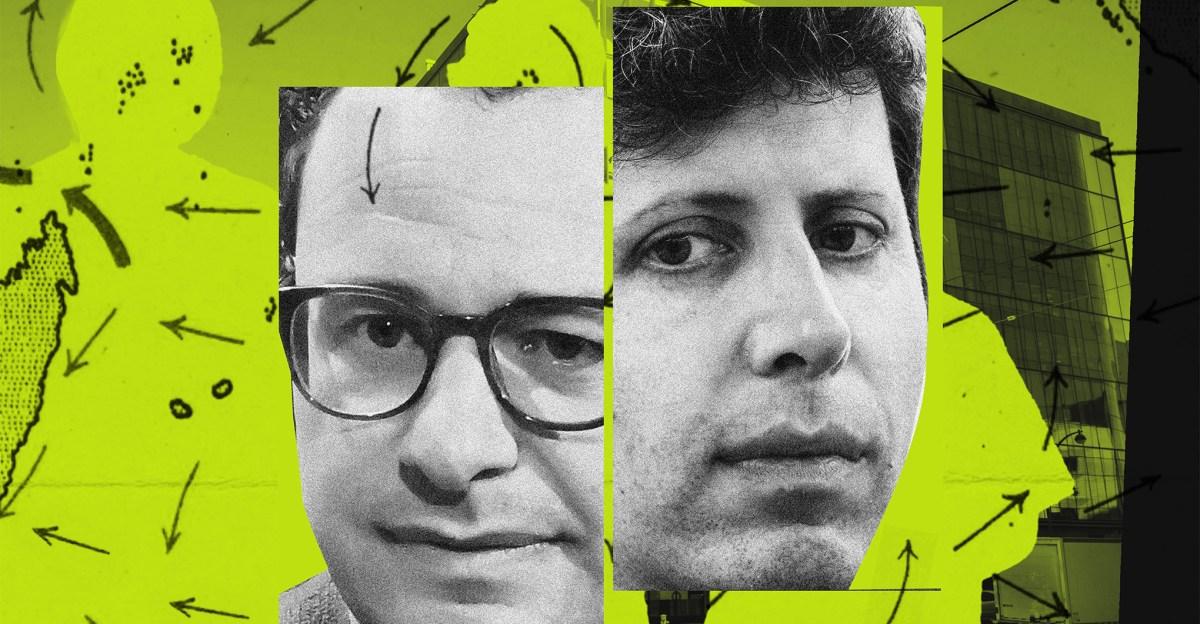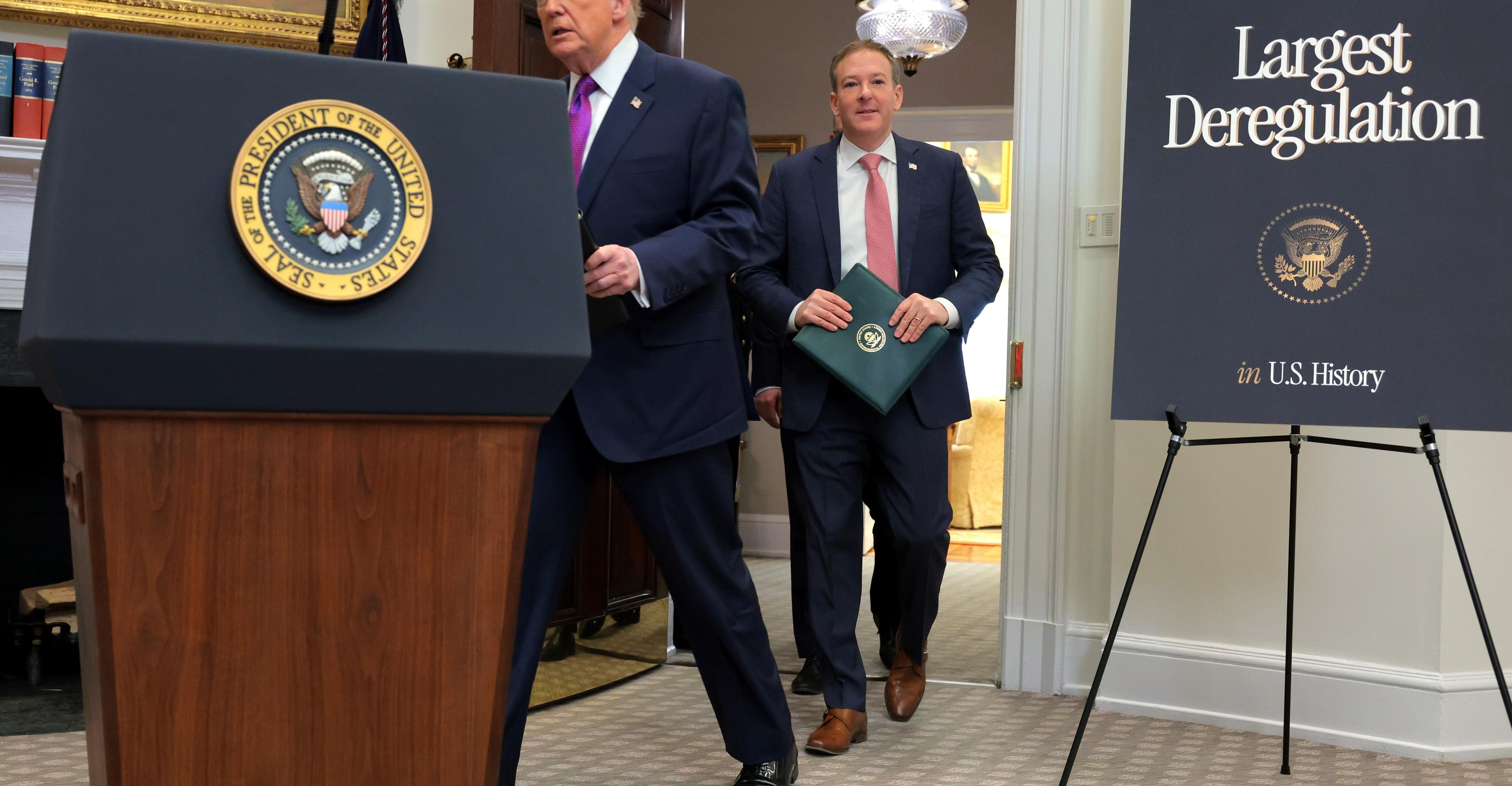DETROIT — The federal government is laying the groundwork for a potentially major change to the nation’s largest rental assistance program, aiming to test an idea that would allow low-income tenants to pay rent directly with cash, rather than use traditional …

Published 2 years ago on Jun 15th 2024, 12:00 pm
By Web Desk

DETROIT — The federal government is laying the groundwork for a potentially major change to the nation’s largest rental assistance program, aiming to test an idea that would allow low-income tenants to pay rent directly with cash, rather than use traditional housing vouchers. On Wednesday afternoon in Detroit, at a national guaranteed income conference, HUD Deputy Assistant Secretary for Policy Development Brian McCabe announced that his agency is soon planning to solicit public comment on the prospect of testing whether distributing cash directly to tenants might work better for renters, landlords, governments and even taxpayers. Officials are keenly aware of some of the stark challenges faced by participants of the 50-year-old federal voucher program. To get a voucher, a household first must prove eligibility. Then a public housing agency must issue the voucher subsidy to a landlord on the household’s behalf. The landlord must then accept that voucher, the unit must pass an inspection, and the landlord must sign a contract with the public housing agency. These are a lot of steps, and many landlords simply refuse to rent to voucher holders, citing frustrations with the often slow and complicated process. Landlords complain of bureaucratic headaches like delayed lease signings that lead to income loss and arbitrary-seeming unit inspections. Some renters, in turn, struggle to find anywhere to use their voucher, should they be one of the lucky few to even receive one. One federal study found that only about 60 percent of beneficiaries can find a landlord willing to rent to them. HUD will specifically seek input on questions like whether landlords would be more willing to rent to low-income people if they could skip the government’s red tape, and whether there would be higher-quality housing available to renters using cash. More than two million families currently use the federal subsidy. At the conference, McCabe also shared that HUD plans to soon issue guidance to housing agencies on how they could run these sorts of cash pilot programs. McCabe was referring specifically to agencies in Moving to Work, a federal program that allows certain public housing authorities to spend their dollars more flexibly than is permitted under the traditional voucher program. Moving to Work was established in 1996 and expanded by Congress in 2016. [Image: Rebecca Thompson, Gail Geohagen-Pratt, and Brian McCabe at the Guaranteed Income Now conference in Detroit on June 12, 2024. https://platform.vox.com/wp-content/uploads/sites/2/2024/06/240611_GINow_Miller_0736_d510e9.jpg?quality=90&strip=all] McCabe’s announcement reflects a change in HUD’s position on cash assistance. Last year, HUD lawyers said housing agencies, including those in Moving to Work, lacked the legal authority to test cash aid in lieu of vouchers. The shift came in part from advocacy by housing leaders over the last year, who’ve emphasized that they believe Moving to Work agencies do have congressional permission to pilot innovations like cash rental assistance. Vox reviewed one such letter sent on May 7 by four national housing groups, and another sent by public housing agency leaders, like Preston Prince, the executive director of the Santa Clara Housing Authority. Providing cash assistance “could be really disruptive — in a good way,” Prince told Vox. “Cash could help us serve more families.” Santa Clara has some 37,000 people on its voucher waitlist, and leaders estimate that they’re currently serving just one in six eligible residents. Prince acknowledges that a study testing cash rental assistance could evoke more criticism of the housing voucher program or even of housing authorities more broadly. “I am petrified about doing this pilot project, that it might prove something I've been working on for 30 years is not effective,” he told me. “It could challenge the overall system. That's the unnerving part. But it takes a little bit of courage to say in the end it’s not about me.” Advocates for testing cash rental assistance stress that they’re just looking to improve the housing voucher program, not replace it wholesale. If cash proved effective and even helped save governments money, officials might be able to focus on providing more support services, producing new housing, and conducting research. Housing authorities spend 13.8 hours annually on average administering individual vouchers, with tasks like certifying a renter’s income and assets to ensure they are as destitute as they say. That voucher fraud detection work exists to protect public funds, but can also be stigmatizing and degrading. “There’s been pressure to look at our families as broken and untrustworthy, and direct rental assistance could really say to people, ‘You are trustworthy and valuable and we are here to help you be successful,’” said Prince. The federal government has taken steps in recent years to cut down on paperwork required to access housing aid. During the pandemic individuals seeking help under the $46.5 billion Emergency Rental Assistance Program could simply affirm, under penalty of perjury, details such as their income or address, rather than submitting official records. More recently, HUD announced that housing agencies could allow people to self-certify their income for homeless program eligibility, a move that could expedite voucher access. In announcing the shift, HUD acknowledged that many people experiencing homelessness might not have Social Security cards or pay stubs to prove their income status. While some renters might prefer vouchers, others may find cash easier and faster to use, especially in certain markets. “I suspect that renters being able to present themselves to landlords as paying like any other potential tenant could feel quite empowering,” Stefanie DeLuca, a sociologist at Johns Hopkins, told me in 2021. Several sources Vox spoke with confirmed there could be multiple cash rental assistance studies launched as early as this year. Though housing leaders are pitching the research as a modest policy inquiry, officials involved are keenly aware of the potentially dramatic implications of this research, should the studies show that cash indeed works better. A small pilot could lead to a larger federally funded demonstration study, which could, officials say, then lead to asking Congress to make permanent changes to the big bipartisan program. How the idea of cash rental assistance advanced The road to McCabe’s announcements in Detroit traces its origins back to the 1970s, in a now largely forgotten nationwide study of cash rental assistance. Known as the Experimental Housing Allowance Program, 50,000 families across 12 US cities received cash subsidies for rent. Program evaluators found the subsidies were well-received and successfully administered, but policymakers shifted their attention to the new federal housing voucher program, then known as Section 8. In 2017, Todd Richardson, a longtime HUD staffer whose team inadvertently discovered old reports of this federal experiment, proposed that those findings could inform the existing Moving to Work voucher program. Enthusiasm mounted further following successful Covid-19 cash aid experiments ranging from rental assistance and stimulus checks to child tax credits and dozens of guaranteed income pilots. In 2022 Philadelphia also launched its own cash rental assistance pilot, studying 300 households selected to receive money on a prepaid debit card every month. By September 2023, as Vox then reported, HUD officials began formally pitching philanthropies and basic income advocates on partnering to study this cash rental assistance idea. Part of their hope was that private charitable dollars might have fewer legal constraints than federal voucher funds, which HUD attorneys then still felt would be ineligible to use for the research. Since then HUD has been meeting regularly with nonprofits, funders, and housing experts to figure out how to get this cash aid idea off the ground. The federal housing agency has been hosting monthly virtual meetings and in November convened an in-person event in Washington, DC. James Riccio, with the national policy research group MDRC, has participated in those monthly calls led by HUD analyst Paul Joice, and he told Vox his nonprofit should know “within the next month” if they can move forward with officially designing a cash rental assistance study. If they get the go-ahead, Riccio thinks their design work could be completed by late summer or early fall. “We’ve taken up the gauntlet that HUD has thrown down and are trying to build a demonstration that would inform HUD’s efforts,” he said. MDRC’s goal is to conduct a two-year randomized control trial across five geographically diverse cities, studying 1,000 families. Half of those would pay for their housing with traditional vouchers, and the other half would use cash. “We really don’t know how it’s going to turn out, if landlords would be more inclined to rent to people,” Riccio said. “It seems there’s very good reason to think it could be true, but it’s something we could learn.” Basic income advocates see a major opportunity The pilot program is especially exciting for advocates of guaranteed income, who believe that the government should provide individuals with unconditional cash payments to reduce poverty, promote economic stability, and ensure basic standards of living. During the early years of the pandemic, federal emergency aid fueled some tests of this guaranteed income idea. But that money has largely run out, and the tens of billions in annually appropriated federal voucher dollars presents advocates with a much more potentially reliable funding stream. For now, leaders in the movement emphasize that they see cash rental assistance as a complement, rather than a replacement, to other forms of housing aid. “We don’t want to be providing impetus to strip HUD of funding for the voucher program, which along with other rental assistance lifts 900,000 people out of poverty every year,” said Nika Soon-Shiong, the executive director of the Fund for Guaranteed Income, which is currently fundraising for a cash rental assistance pilot. “It’s not about more or less government, it’s about what kinds of interactions officials are investing in. What if every call to verify a low-income renter’s income was instead, ‘Hey, I heard you needed a ride. I can drive you.'” The Fund for Guaranteed Income, which has administered a dozen basic income pilots across the US, is hoping to launch a rental assistance study later this year. It would be less statistically precise than the one MDRC is pursuing, but Soon-Shiong says they’d be focused more on practical design questions and specifically helping individuals move into apartments more easily. Their smaller pilot would aim to study 100 people for one year who receive direct cash, compared with 100 people who receive a voucher off the waitlist. “What we’re trying to pilot is the mechanisms to build that cash on-ramp, and what it looks like specifically to redesign the housing inspection form, and to make sure the contract they sign can be converted into a housing assistance payment contract,” Soon-Shiong told Vox. “Our particular intervention is focused on how we can solve one of the key problems of the program which is that people aren’t able to utilize their voucher.” At the Detroit conference on Wednesday, McCabe gave a shout-out to the Fund for Guaranteed Income’s work and stressed that he sees many different variations of research as helpful to building an evidence base. “I want to emphasize there are millions of different ways that this type of program could be developed, and they would test different things and address different issues in the voucher program,” he said. “But in the end, we’re thinking about what it would mean to give families cash to pay their rent.”
PMD predicts dry weather in most parts of country
- 19 hours ago

Strong earthquake rattles eastern Afghanistan
- 18 hours ago
Why it's so difficult to break into the Premier League's top six
- 8 hours ago
PM Shehbaz calls for independent, sovereign state of Palestine
- a day ago
Pakistan, US agree to enhance bilateral trade, economic ties, counterterrorism cooperation
- a day ago

Gold prices continue to surge in Pakistan, global markets
- a day ago

What the arrest of former Prince Andrew can teach us about power and abuse
- 7 hours ago

It’s MAGA v Broligarch in the battle over prediction markets
- 9 hours ago

Magnitude 5.6 quake jolts parts of KP
- 19 hours ago

The hottest new winter sport is about to get even hotter
- 7 hours ago

The party-fication of productivity
- 7 hours ago

Money no longer matters to AI’s top talent
- 9 hours ago
You May Like
Trending









